Data Sovereignty
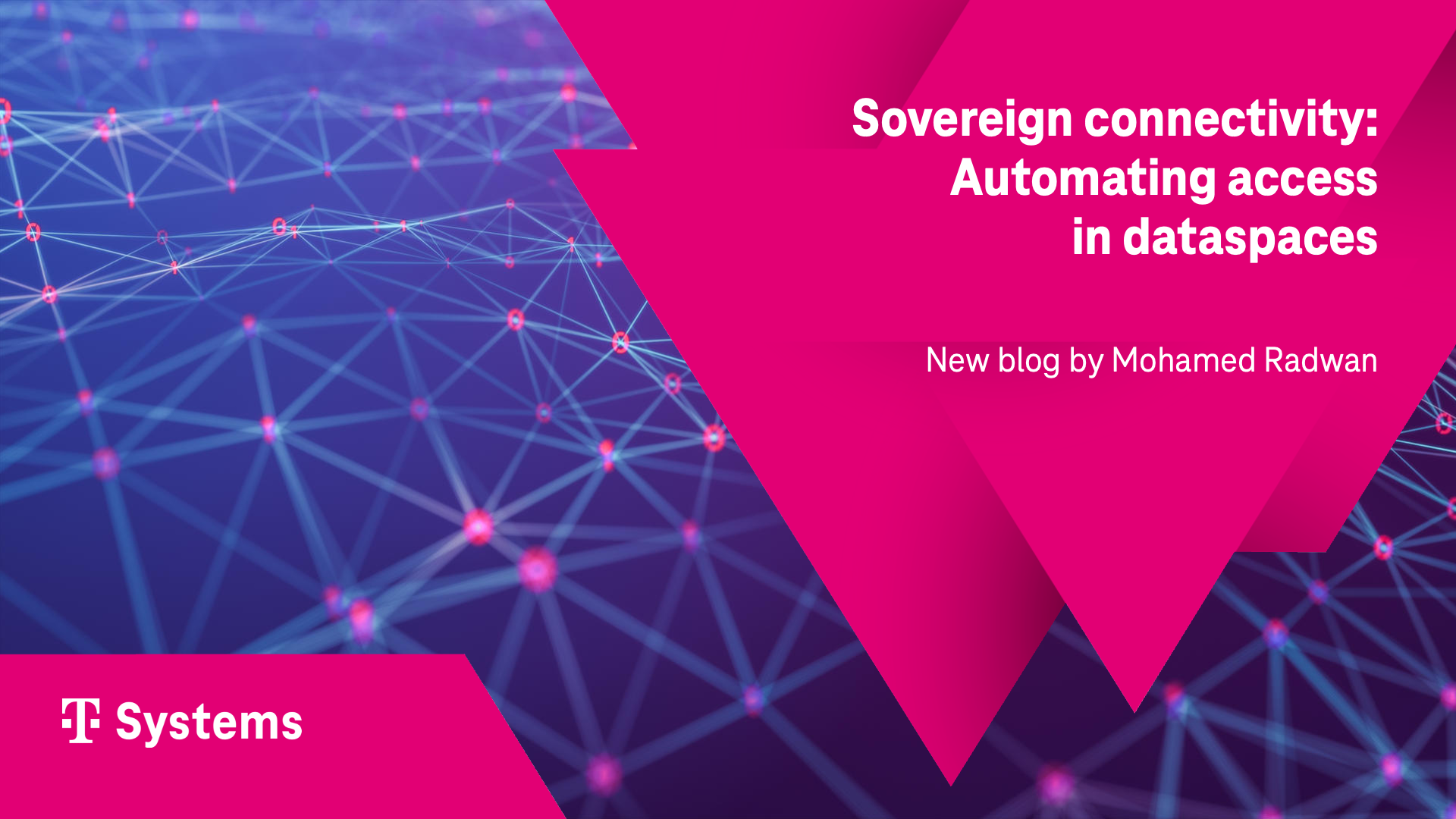
Sovereign connectivity: Automating access in dataspaces
Sovereign connectivity in dataspaces requires automating network access to ensure security, compliance, and operational scale. In the Data Intelligence Hub, we replace manual firewall updates with a declarative, Kubernetes-native model using Custom Resource Definitions (CRDs). Customers define their allowed IP ranges through a self-service portal, which generates an IpAccessPolicy object representing the desired state. A controller then reconciles this state with the underlying infrastructure, automatically updating Kubernetes Ingress configurations and preventing drift. This architecture ensures auditability, validates inputs before enforcement, and keeps network access aligned with the principles of data sovereignty across multi-tenant environments.
Read more

Mohamed Radwan
Jan 15, 2026
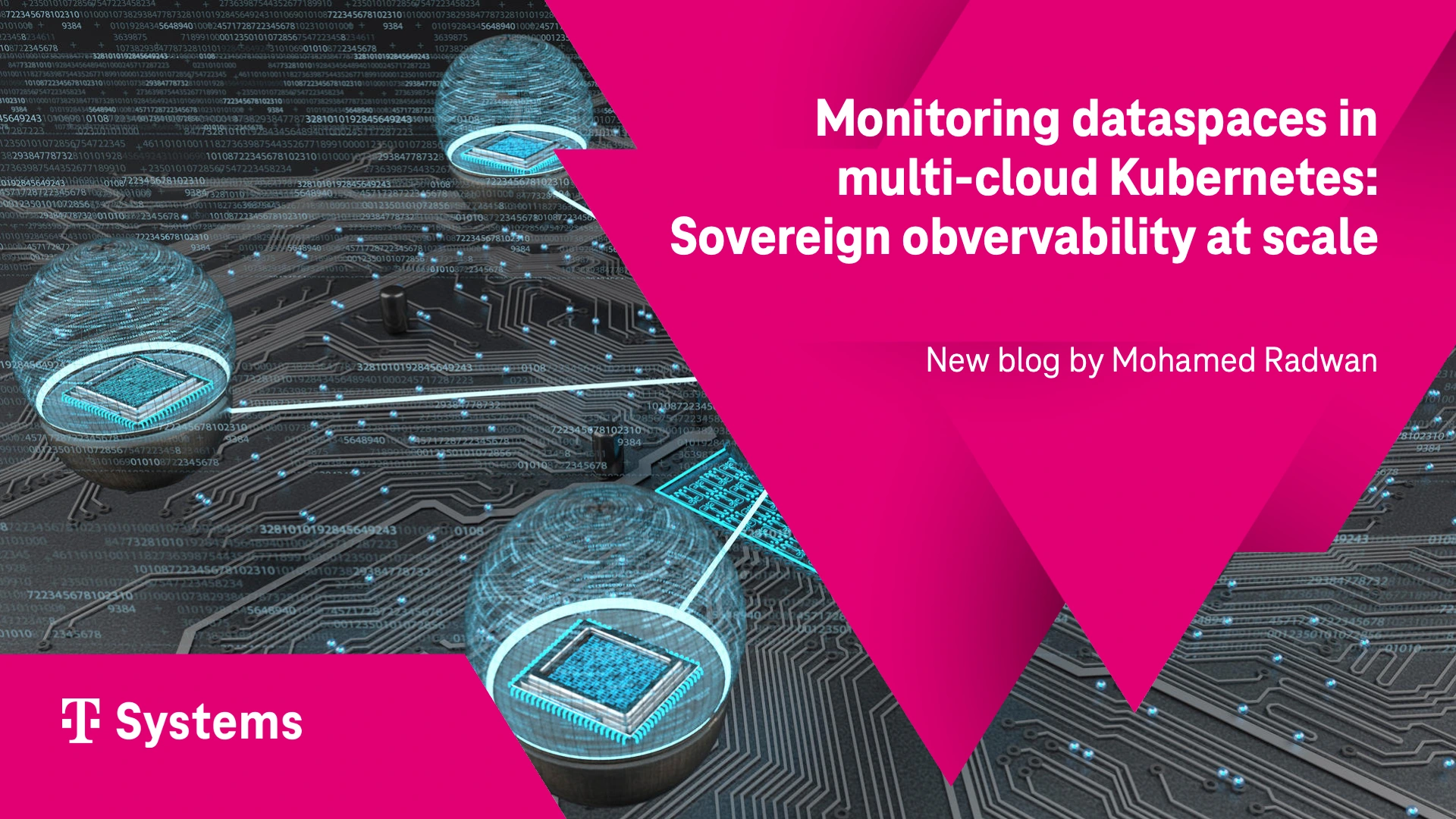
Monitoring dataspaces in multi-cloud Kubernetes: Sovereign observability at scale
Sovereign observability is now essential as organizations operate Kubernetes across fragmented multi-cloud environments. Traditional monitoring approaches fail when logs and metrics cannot leave their originating region due to compliance and data-residency constraints. This architecture solves the challenge by decoupling storage from querying: each cloud environment writes logs and metrics to its own sovereign object storage while a central observer cluster queries them on demand. Leveraging Prometheus, Thanos, Loki, and Promtail, the system provides global visibility, secure mTLS communication, isolated buckets, and a unified Grafana experience — all without violating sovereignty rules.
Read more

Mohamed Radwan
Jan 07, 2026
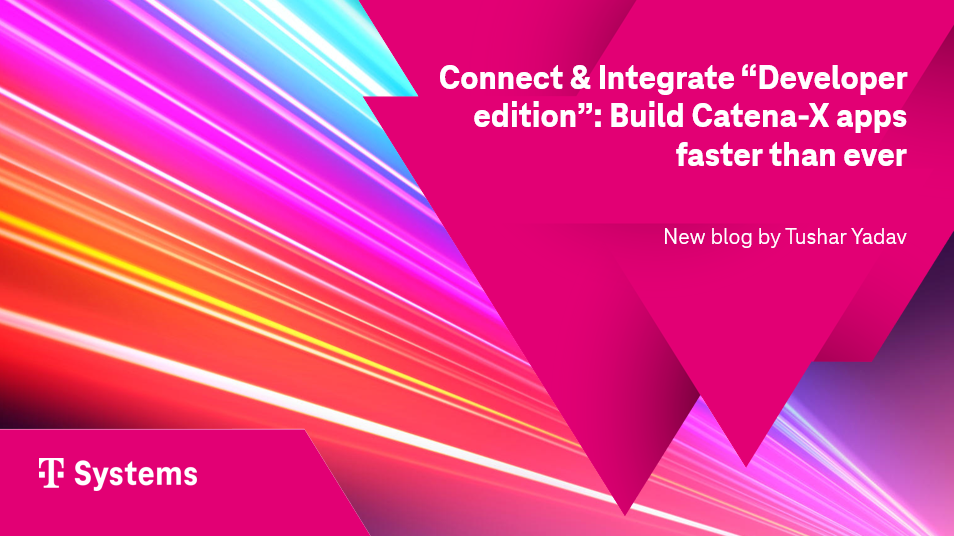
Connect & Integrate “Developer edition”: Build Catena-X apps faster than ever
T-Systems has launched Connect & Integrate “Developer edition”, a streamlined environment designed to accelerate Catena-X application development. By removing barriers such as connector setup, compliance alignment, and semantic validation, the platform provides out-of-the-box connectivity with Catena-X–compliant APIs, guided workflows, and built-in compliance tools. Developers gain immediate access to secure, standardized data exchange without managing complex infrastructure, enabling them to focus on building innovative solutions across key use cases like traceability, carbon footprint, and demand management. Positioned as an innovation catalyst, the “Developer edition” empowers startups, integrators, and enterprises to rapidly deliver production-ready applications and drive Catena-X adoption across the automotive value chain.
Read more

Tushar Yadav
Dec 15, 2025
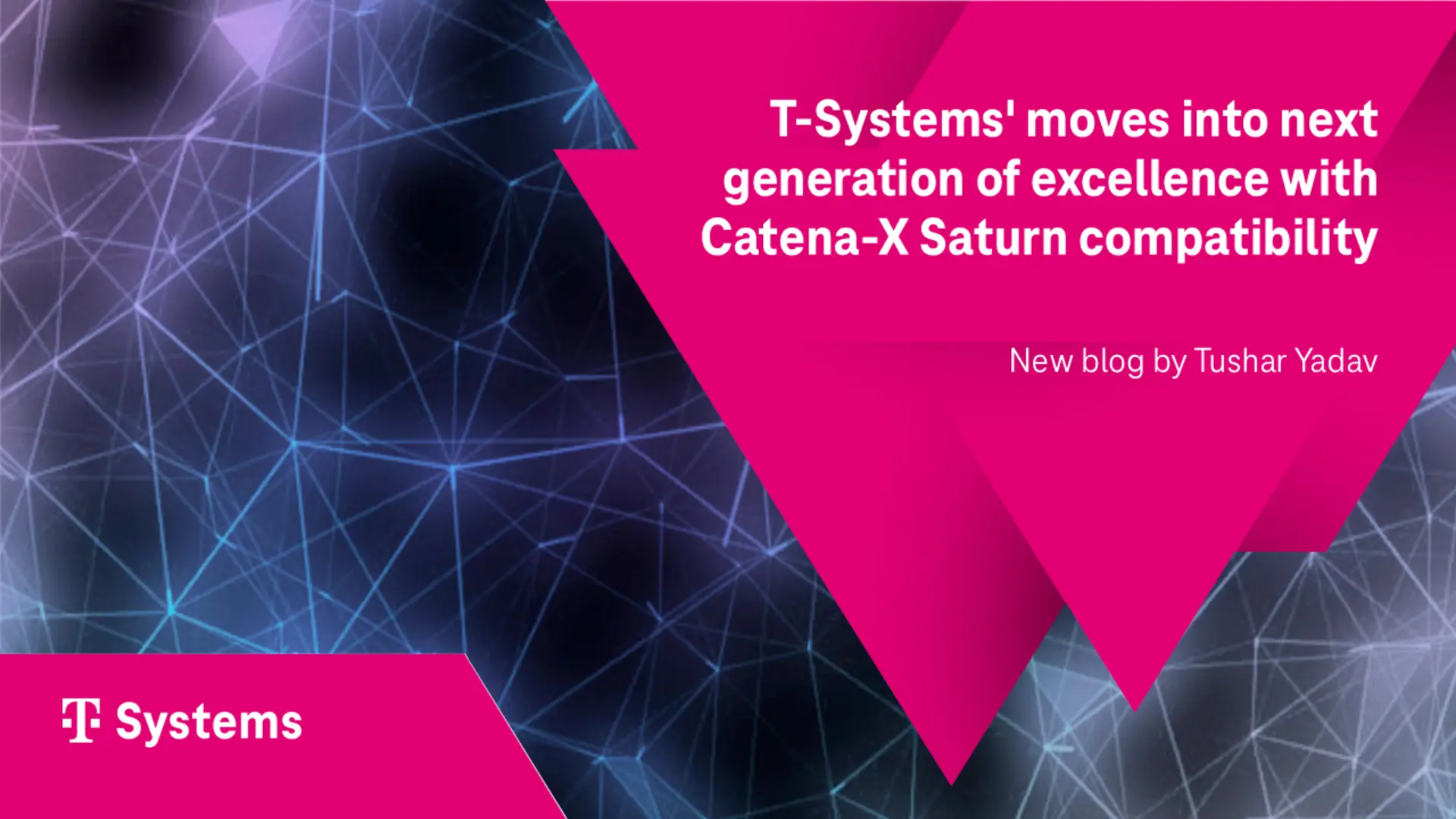
T-Systems' moves into next generation of excellence with Catena-X Saturn compatibility
T-Systems’ Connect & Integrate solution is now fully compatible for the latest Catena-X “Saturn” release, effective November 25, 2025. This milestone enhances secure, cross-company data exchange in the automotive industry by introducing updated standards, stronger interoperability, and robust policy management. Saturn certification enables participants to confidently adopt Catena-X use cases ranging from certificate management to advanced traceability and carbon footprint tracking. With backward compatibility, cloud-agnostic design, and vendor independence, Connect & Integrate ensures scalability for SMEs and global enterprises alike. T-Systems provides expert guidance to support smooth migration from the previous “Jupiter” version, empowering organizations to unlock the full potential of Catena-X Saturn.
Read more

Tushar Yadav
Dec 05, 2025
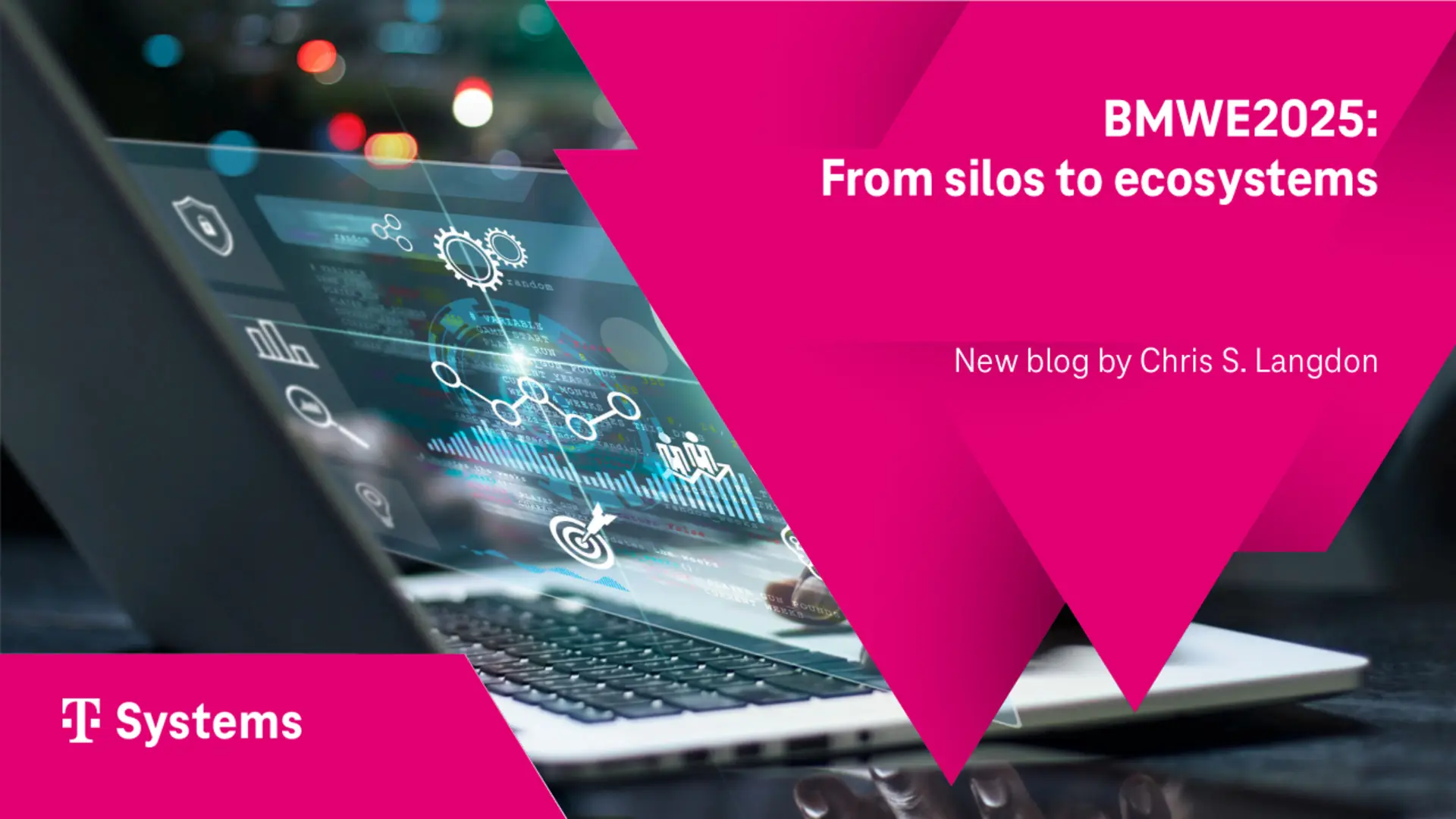
BMWE2025: From silos to ecosystems
The Federal Ministry for Economic Affairs and Energy’s conference “From Silos to Ecosystems – Creating Europe’s Digital Momentum” (Berlin, 5–6 Nov 2025) highlighted Europe’s unique opportunity to lead in industrial data ecosystems powered by dataspace technology. While Europe may not compete at scale in general-purpose foundation models, it holds a strategic advantage in sovereign, cross-industry data sharing. Keynotes and panels emphasized the urgency of data readiness, with Oliver Ganser (BMW, Catena‑X) calling for accelerated adoption to maintain Europe’s lead. Practical workshops showcased initiatives such as Manufacturing‑X, Industrial AI, and the IPCEI on Cloud Infrastructure and Services, while RoX demonstrated early prototypes for AI‑based robotics dataspaces. The event underscored that Europe’s digital momentum will hinge on scaling industrial ecosystems, anchoring them in local clusters, and expanding across supply chains to unlock new growth opportunities.
Read more

Chris S. Langdon
Nov 10, 2025
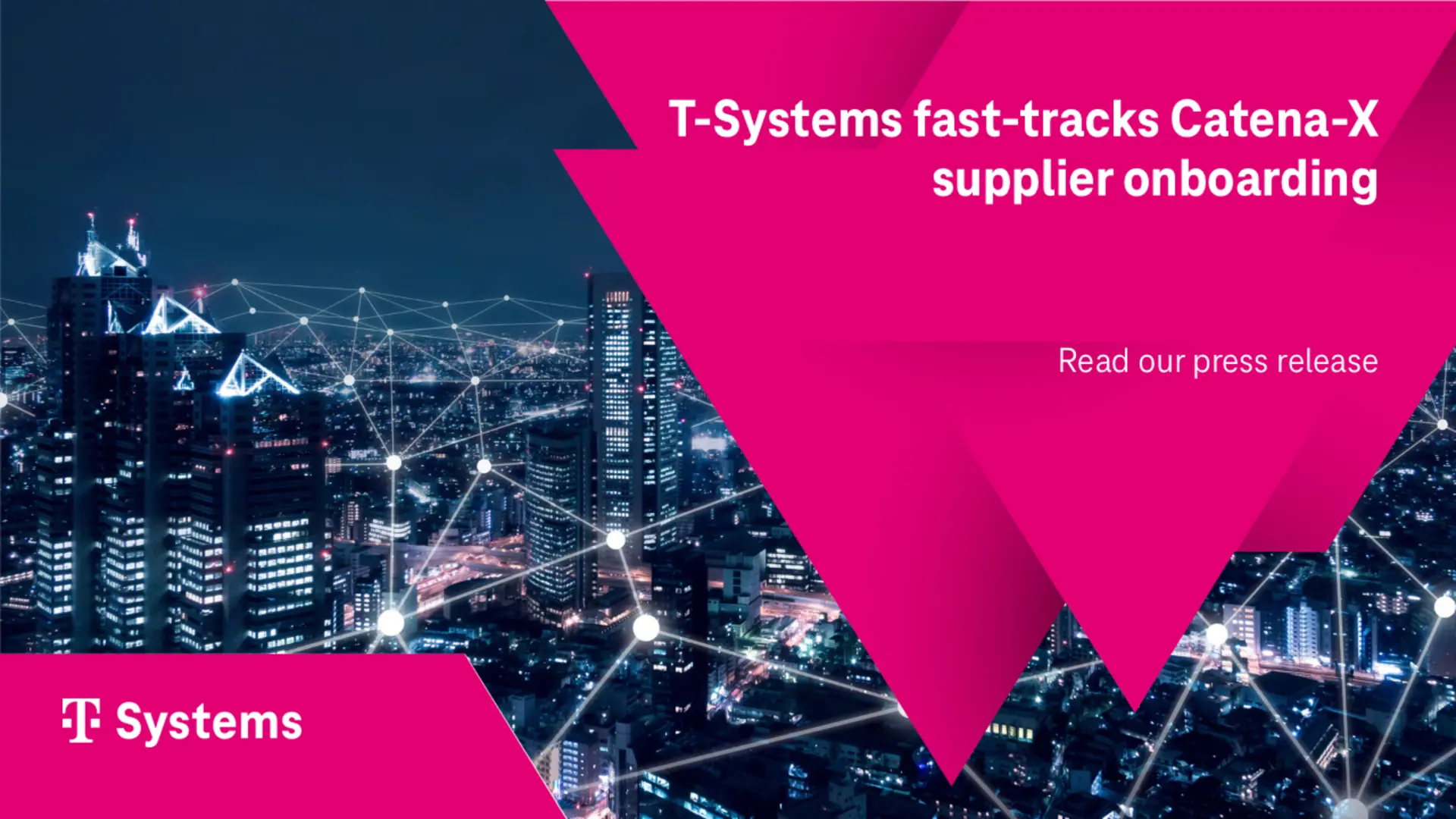
T-Systems fast-tracks Catena-X supplier onboarding
T-Systems, co-founder of Cofinity-X, is accelerating supplier onboarding into Catena-X—the world’s first standardized, collaborative data ecosystem for the automotive industry. Since October 2023, Cofinity-X has enabled secure access to over 45 certified apps supporting sustainability, quality, and supply chain resilience. As a certified Onboarding Service Provider (OSP), T-Systems offers scalable, secure integration through its modular Connect & Integrate solution and a referral program valid through 2025. With growing adoption across Europe, North America, and China, and mandates from OEMs like BMW and Ford, Catena-X is becoming essential for compliance and digital transformation. T-Systems will showcase its onboarding capabilities at IAA MOBILITY 2025 alongside Cofinity-X.
Read more

Andrea Garcia
Aug 22, 2025
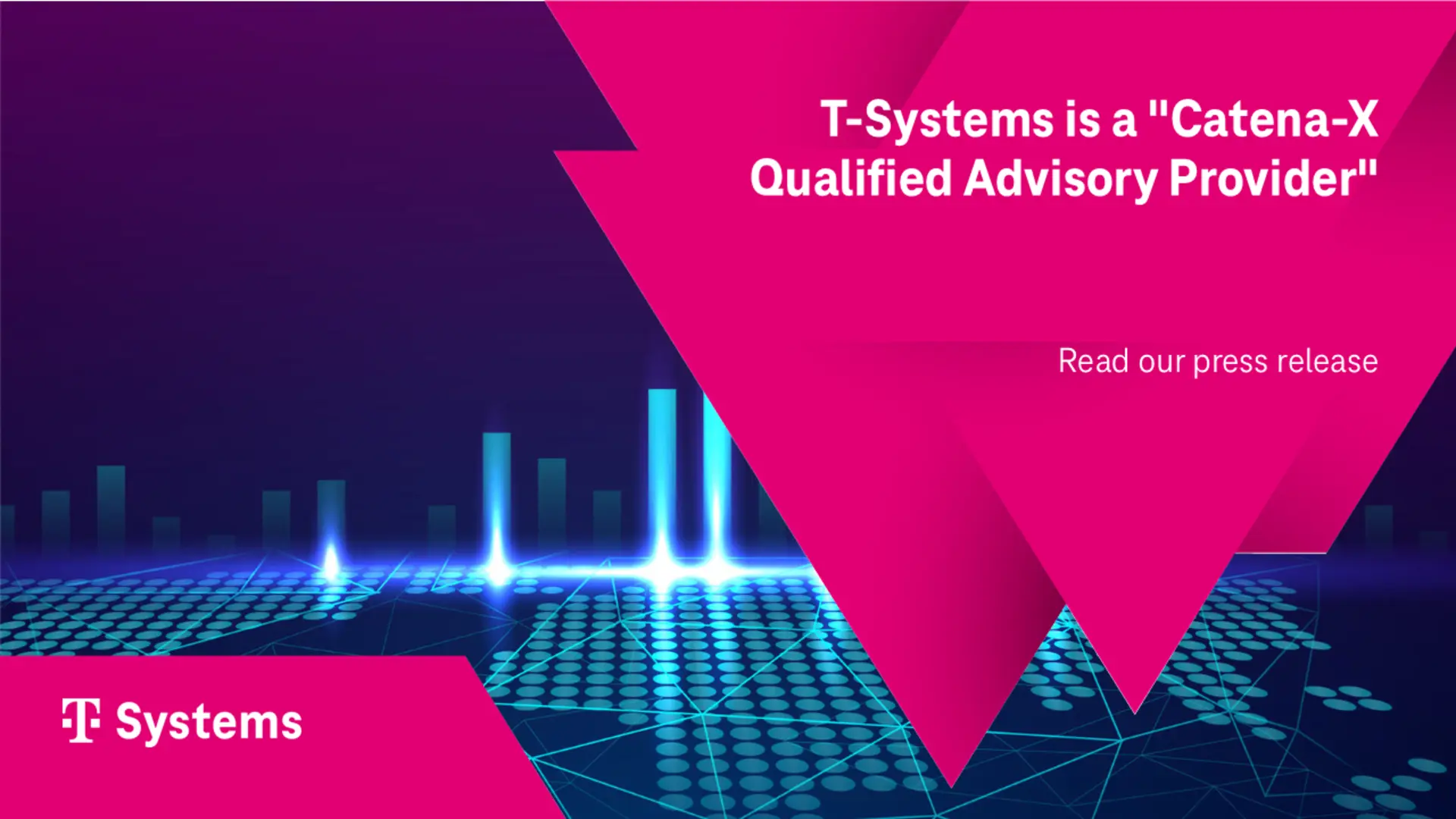
T-Systems is a "Catena-X Qualified Advisory Provider"
T-Systems has achieved qualification for four key roles within the Catena-X automotive data ecosystem, becoming its largest service provider as of April 2025. With over 25 certified advisors operating across four continents, the company now offers comprehensive support as a Business Application, Advisory, Enablement, and Onboarding Service Provider.
Read more

Robin Reji Philip
Jun 10, 2025

Making manufacturing systems talk to each other
Interoperability in manufacturing is often misunderstood. Not because companies doubt its importance, but because it's difficult to visualize what success looks like. This blog uses simple analogies to explain the core challenges: outdated machines that can’t “speak” to modern systems, and people hesitant to share data without context or trust. With solutions like Asset Administration Shells and Data Spaces, manufacturers can unlock hidden value, foster secure collaboration, and take real steps toward digital transformation.
Read more

Nick Jephcott
May 18, 2025

Enabling cross-ecosystem commerce: A perspective by NTT and T-Systems
T-Systems and NTT are shaping the future of trusted global data exchange by combining telecom-grade infrastructure with federated identity and dataspace interoperability. Their joint contributions to the IDSA paper and cross-border testbeds between Europe and Japan show how telcos can drive secure, scalable, and regulation-compliant data collaboration across ecosystems. This approach supports real-world use cases like Digital Product Passports, predictive maintenance, and circular economy models—laying the groundwork for a network of sovereign, interoperable digital infrastructures.
Read more

Lena Matsela
May 13, 2025